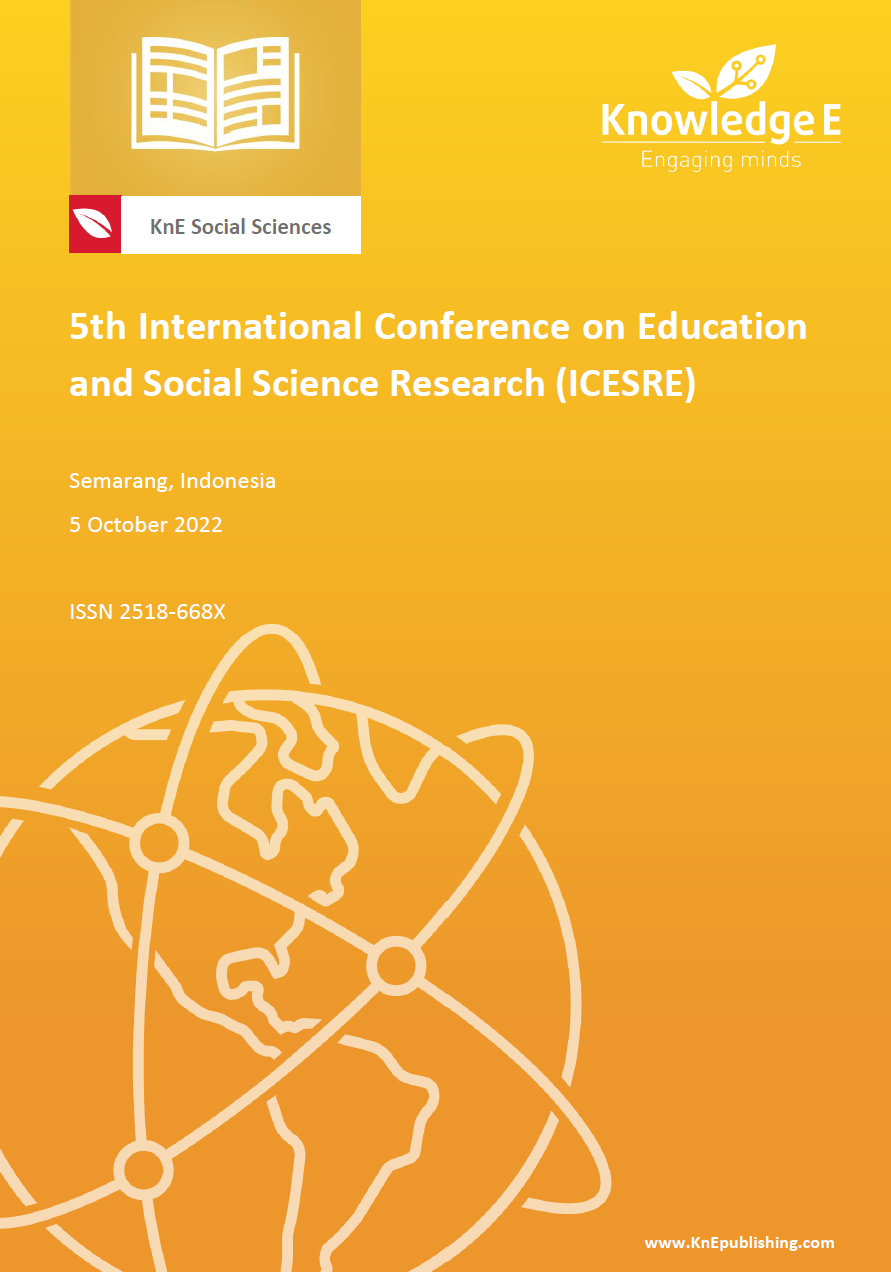Are Indonesian Netizens Really Uncivilized? Indonesian Netizen's Response to MSP's Inauguration as Chairman of Brin Main Board
DOI:
https://doi.org/10.18502/kss.v7i19.12439Abstract
This study examined netizens’ response to MSP’s appointment as the Chairman of Brin Main Board of the National Research and Innovation Agency (BRIN) on October 13, 2021, by President Jokowi, which caused controversy. The netizens’ responses are interesting to study from a cyber-pragmatic perspective. This study described and explained the types of netizens’ responses to the inauguration of the Chairman of Brin Main Board, the forms of netizens’ response to the inauguration, and degree of the politeness of the responses against MSP’s inauguration. The data of this study is in the form of netizens’ responses to the shows on YouTube. The data is gathered using the documentation method through the technique of Simak Bebas Libat Cakap (SBLC). The data was analysed using descriptive techniques following the stages of the interactive model of Miles and Huberman. The results of data analysis showed that there are three types of responses, namely pro responses, counter-responses, and neutral responses. The response is indicated in the form of assertive speech acts, which are stating, proposing, and informing; directive speech acts which are commanding, forbidding, advising, inviting, asking, and suggesting; and expressive speech acts, which are praising, sarcastic, and insulting. Netizens’ utterances that are not polite have a more significant percentage than polite ones. This indicates that the Indonesian netizens tend to be uncivilized in responding.
Keywords: verbal response, type of response, form of response, (im)politeness, Indonesia netizens
References
[2] Yus F. Cyberpragmatics: Internet-mediated communication in context. Amsterdam, Netherlands: John Benjamin Publishing Company; 2011.
[3] Locher MA. Cyberpragmatics: Internet-mediated communication in context. Journal of Pragmatics. 47 (1):128–130; 2013.
[4] Hymnes. Foundations in sociolinguistics. Philadelphia, PA, USA: University of Pennyslvania Press; 1974.
[5] Austin J. How do things with words? Cambridge, Massachusetts, USA: Harvard University Press; 1962.
[6] Searle J. Speech act: An essay in the philosophy of language. Cambridge, UK: Cambridge University Press; 1985.
[7] Leech. The principles of pragmatics. Harlow, UK: Longman Group Limited; 2016.
[8] Bontis N, Dragonetti NN, Jacobsen K, Ross G. The knowledge toolbox: Manage intangible available to measure and a review of the tools resources. European Management Journal. 1999;17:391–402.
[9] Eelen. Kritik teori kesantunan (penerjemah jumadi dan slamet rianto). Indonesia: Airlangga University; 2021.
[10] Cullpeper J. Impoliteness using language to cause offense. Cambridge, UK: Cambridge University Press; 2011.
[11] Scollon R, Scollon SW. Intercultural communication. New York, USA: John Wiley & Sons; 2012.
[12] Rahardi K. “Konteks dalam perspektif cyberpragmatics” dalam linguistik Indonesia. 2020;3:164–178.
[13] Miles MB, Huberman M. The qualitative researcher’s companion. California, USA: SAGE Publication; 2002.
[14] Pramujiono A. Representasi kesantunan positif-negatif brown dan levinson dalam wacana dialog di televisi. Jurnal Bahastra; 33(2):43-72; 2015.
[15] Alwi H. Tata Bahasa baku bahasa Indonesia (edisi ketiga). Jakarta: PT Balai Pustaka; 2000.
[16] Fairclough. Language and power. London, UK: Longman Group Limited; 1989.
[17] Mandl H, Levin JR. Knowledge acquisition from text and pictures. Amsterdam: North- Holland; 1989.
[18] Purwati ED, Wildianto D, Rani A. Language impoliteness in the comment section of Baim Wong Youtube channel. Bhs. J. Keilmuan Pendidik. Bhs. dan Sastra Indonesia. 2022;4.

